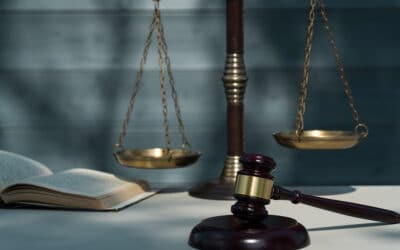John Kao, a Princeton-educated mathematics Ph.D., took workplace diversity seriously. He was the type who not only raised the issue of a lack of diversity with his employer, the University of San Francisco, he submitted a written complaint alleging racial discrimination and harassment.
A 485-page complaint.
Fifteen months later, in August 2007, he generated a 41-pageaddendum.
His employer responded in two pages.
Not surprisingly, Kao wasn’t satisfied. A tenured professor, he met on Jan. 3, 2008, with a math colleague, professor Paul Zeitz, about USF’s methods for recruiting new faculty members. Zeitz later described this meeting as “the most upsetting thing that’s ever happened to me at my job.”
The meeting began with Kao speaking politely about the school’s hiring efforts, but suddenly he “was unable to control his emotions.” A self-described martial arts expert and former Ivy League judo champion, Kao “terrified” Zeitz by screaming at him “as though I had personally done something horrible to him.”
Colleagues since 1992, Zeitz never before was afraid of Kao, but at that meeting, Zeitz remembered “this sudden change to complete irrational, uncontrollable rage.”
Associate Dean for Sciences Brandon Brown was Kao’s next stop. Brown vividly remembered that, with fists clenched, Kao “immediately began shouting about the mathematics job search.” Kao approached him “incredibly agitated, enraged, really.” Brown stated: “If you want to give someone non-verbal clues that you are able to attack them, from my reading that’s what was going on.”
At a February faculty search meeting, Zeitz recalled Kao offering an “uncontrolled rant about things that made no sense.” This proved “very upsetting and very scary for me.” Professor Stephen Devlin described Kao as “shaking with anger” and “screaming,” while professor Tristan Needham recalled him throwing papers across a table in a “pretty intimidating” manner.
Kao’s behavior remained of concern throughout the spring semester. Needham and Zeitz were each bumped into by him, which had never happened before. Knowing how angry Kao was, Needham wondered, “If he can bump me, what’s to stop him from shooting me.”
USF’s Dean of the College of Arts and Sciences Jennifer Turpin inquired about Kao’s sick mother. Kao grew shocked and “enraged” by her question and “clenched his jaw” and “looked mean and mad,” Turpin recalled. She quickly moved away and saw him angrily “standing there with clenched fists glaring at me.”
When Needham’s wife also asked Kao about his mother at a math department party near semester’s end, she received a similar response. Kao reportedly reacted with “instantaneous rage,” including getting “in her face and very close to her and again rigid with anger” and “seemed out of control.”
Needham described Kao’s new anger during the spring semester was displayed “like white knuckles then the foaming at the mouth,” and he developed a “wild cackling laugh.” Zeitz and Needham were “uneasy being on campus” with Kao that semester, and so was professor Steven Yeung, who characterized Kao’s behavior as “bizarre” and feared for his safety, “whether I will be alive or dead, that kind of physical safety.”
The university began investigating in January and learned that faculty members were fearful of Kao, had lost sleep and felt threatened. USF brought in a forensic psychologist with expertise on threat assessment and fitness-for-duty examinations.
This expert advised USF to assess Kao’s safe job performance ability via a confidential, independent medical exam. An independent evaluator, paid for by USF, should examine Kao and not disclose his psychiatric diagnosis to USF, only whether he was fit to perform his job.
Following this approach, USF sent Kao a consent form for the exam, which included providing his medical records to the independent examiner, but not USF. This led to a June 2008 meeting with Kao and his attorney where undated descriptions of Kao’s disturbing behavior were summarized and provided to him for the first time, without attribution.
Kao’s counsel responded by demanding detailed information about the reports underlying USF’s concern. USF refused, challenging the “productivity” of providing that information. If Kao is expected to consent to a detailed medical and psychological exam, including providing his medical records, insisted his attorney, USF furnishing more detail about the basis for the request is “not unreasonable (or unproductive).”
USF then put Kao on a “leave of absence without duties” and imposed a deadline for Kao’s fitness-for-duty examination. Kao refused, disputing the danger he posed in light of USF’s permitting him to finish the year without taking any timely action or even notifying him of any concern. Kao’s counsel suggested the “unlawful” FFD exam demand appeared to be retaliation for his grievances about the university’s lack of diversity.
At an October 2008 meeting with a USF labor official, Kao supplied social invitations received from math department members in May, June and September and also his aboveaverage student evaluations from the spring semester. USF was not persuaded and suspended him without pay in December, warning ofimminent termination without completion of the FFD exam.
Upon termination in February 2009, Kao filed suit in San Francisco Superior Court, asserting various causes of action. He testified to never intentionally trying to threaten or bump into anyone at USF and denied all other allegations of irregular activity, except laughing, which he labeled a nervous habit and a Japanese cultural trait. His treating psychiatrist testified Kao posed no threat to USF.
The defense case included expert testimony that USF acted reasonably, including by withholding the names and dates behind the complaints of troubling conduct.
The jury ruled against him, and on appeal, his principal contention “is that USF could not lawfully require the examination.” Applicable state regulations permit FFD exams that are job-related and consistent with business necessity.
The appellate court determined the multiple reported instances of Kao’s threatening behavior, together with the unrefuted expert advice USF received about the appropriateness of an FFD exam, adequately supported the jury verdict. Kao v. The University of San Francisco, 1st DCA Case, No A135750.
Kao’s arguments that he never explicitly threatened or hit anyone “in a way that indicated any significant or imminent risk of violence” comprised arguments the jury could reasonably consider and reject. USF could reasonably require an FFD exam in light of the “fear and confusion” caused by Kao’s behavior.


